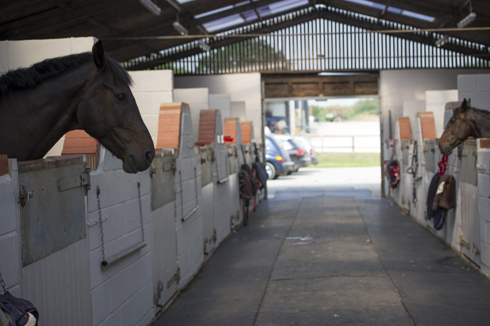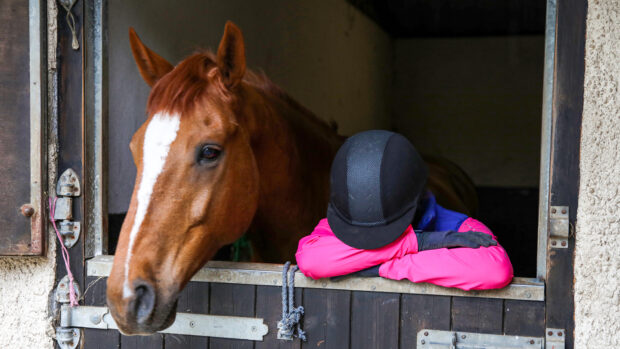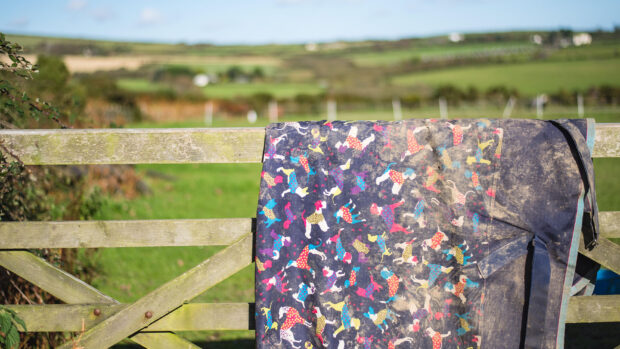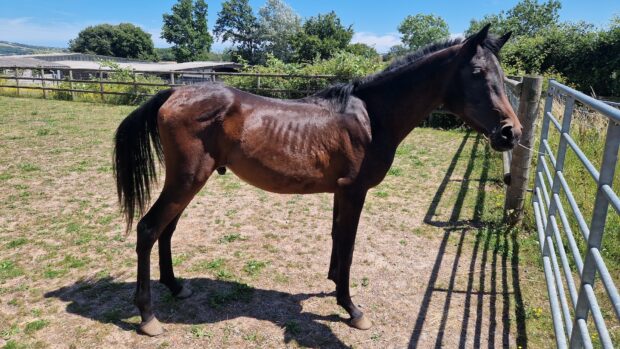“THINK outside the box” is among the advice being given to equestrian businesses to help weather the cost-of-living crisis.
Owners, employees and grooms are also being urged to plan to help mitigate spiralling prices for energy, feed, hay, bedding, mortgages and rents.
George Baber, director of member services and operations at the Association of British Riding Schools said lowering input costs is difficult for many equestrian businesses, which should look to be “making the most” of their facilities to bridge the gap.
“I struggle to see where huge savings can be made by cutting input costs, so you then need to turn to the other side; be inventive and try to maximise capital assets, such as buildings or horses,” he said.
“Some riding schools have used indoor schools for dog agility or horses for supporting equine mental health therapy. There are limits to how many times a horse can be ridden but not for other contact, such as grooming.
“There are usually ways to use assets more, although sometimes these are constrained by staffing. I’m not saying don’t economise input costs, but there are only limited margins for that. Think outside the box and not just with how you can use capital assets but also staff.”
Lucy Katan, founder of the British Grooms Association and Equestrian Employers Association, said with the national minimum wage (NMW) set to rise again next year, businesses may have to look at “modernising the working day”.
“There may have to be some corners cut and tasks amended,” she said. “There are historical traditions, such as sweeping the yard at the end of the day, which don’t affect horse welfare, but do take time and money.
“They might need to think about riding in daylight to save use of arena lights or finishing an hour earlier to save electricity.”
She added that both grooms and employers needed to be mindful of each other’s circumstances.
“Grooms need to be aware of the costs of running a business and take care not to leave lights on in their accommodation or the yard, for example,” she said.
“If a live-in groom is on NMW, their employer can’t charge them a penny more for accommodation until April when the accommodation offset goes up, despite gas and electric bills rocketing.
“On the flip side, employers need to be mindful of the challenges of their workforce, who are more than likely on NMW, and will be struggling to meet costs too.”
Laria Collister is a goals-based financial planner with Castell Wealth Management, but was yard manager for eventer Tom Jackson.
She believes many equestrians may have a “lack of basic financial education” when it comes to making the most of taxes, savings and pensions.
“The earlier you can start thinking about your finances, the better for the future,” she said. “I appreciate money is tight, but whatever you can do is better than nothing.”
One of the first things Miss Collister recommends is making sure you are tax-efficient.
“There are so many allowances, but people aren’t always aware of them,” she said.
“Cash savings may be better in an ISA with higher interest rates and protected from tax. The biggest and most tax-efficient method to save is a pension, as any contribution has automatic tax relief.”
Seeking financial advice, she said, is not just for the wealthy and can be very helpful with goal-setting. In some instances, costs are only a percentage fee for managing an investment, not initial consultation.
“You need to be careful who you pick as not all firms are as transparent with their charges,” she said. “My role comes into play when planning. In good years, I like to plan for the bad years and see how watertight my clients’ financials are and what we need to do to ensure crashes do not have such an impact.”
Gemma Stanford, director of welfare at the British Horse Society, said the rise in living costs is already magnifying the significant financial commitment of horse ownership and urged owners to plan.
“It’s vital to budget as effectively as possible, in a way that doesn’t compromise your horse’s health and welfare,” she said.
“It’s sensible to think now about spreading winter costs across a wider time. Start budgeting every month for the big bills, such as bedding and forage.
“We would also encourage equestrians to have a contingency plan for unexpected bills or treatments, as well as a rise in routine costs. Not facing up to looming difficulties can greatly reduce the options available once the problem has become too overwhelming to ignore.”
You might also be interested in:

9 ways to save money on your horse’s bills

How to save money on horse feed this winter without skimping

‘It’s a false economy’: owners urged not to scrimp on horse care as cost of living crisis continues

Subscribe to Horse & Hound magazine today – and enjoy unlimited website access all year round
Horse & Hound magazine, out every Thursday, is packed with all the latest news and reports, as well as interviews, specials, nostalgia, vet and training advice. Find how you can enjoy the magazine delivered to your door every week, plus options to upgrade your subscription to access our online service that brings you breaking news and reports as well as other benefits.




